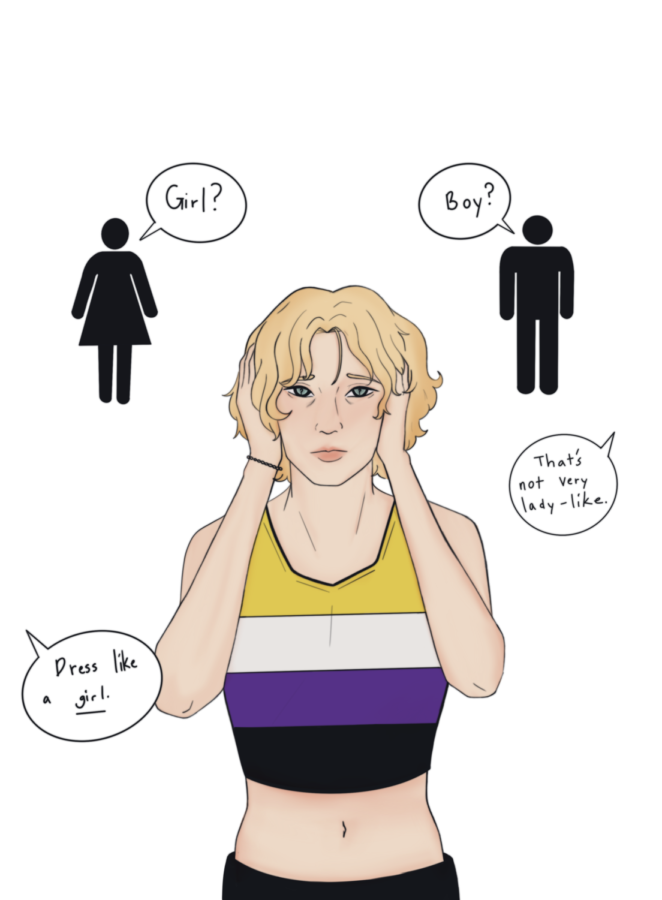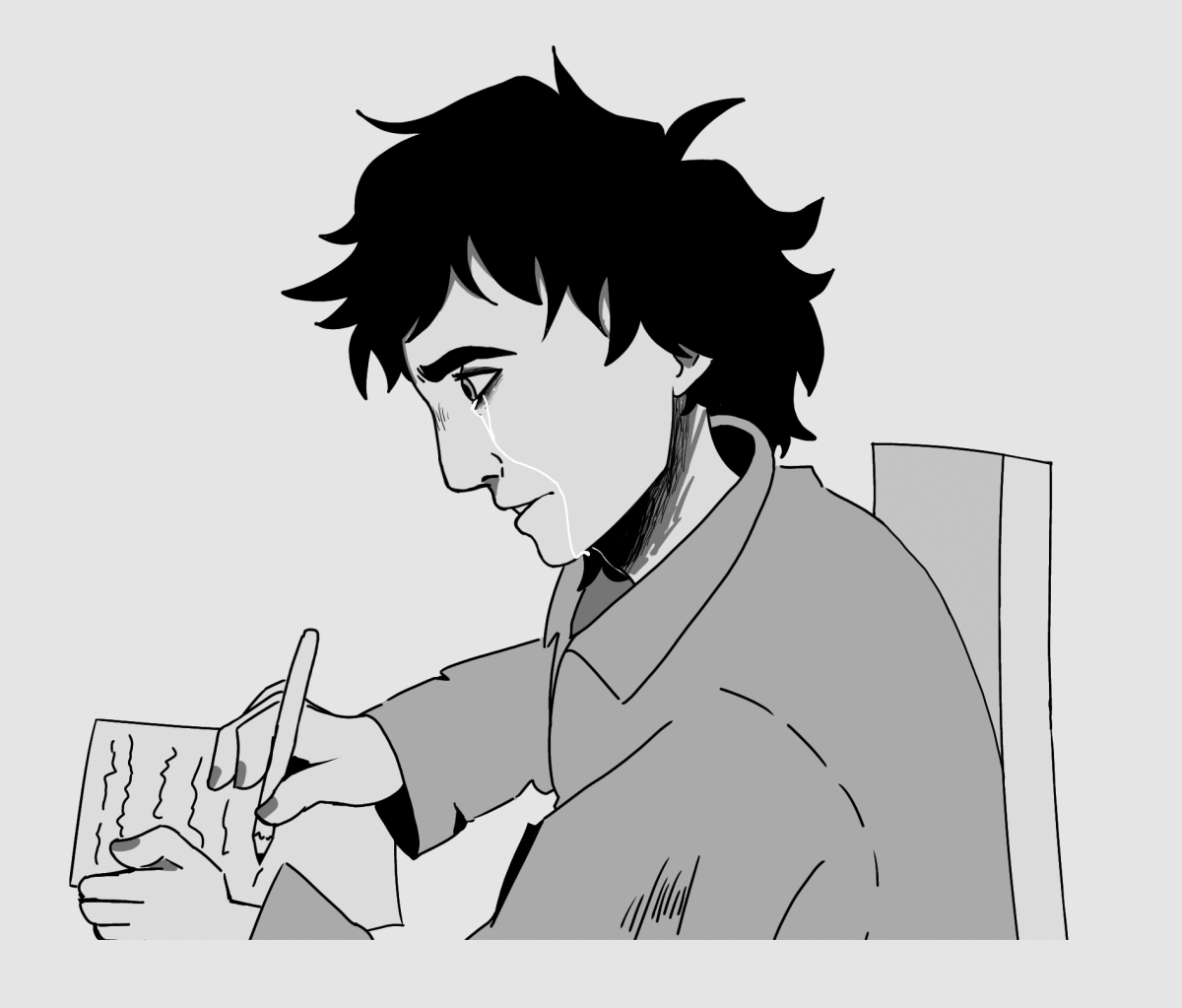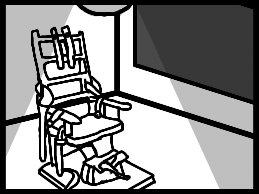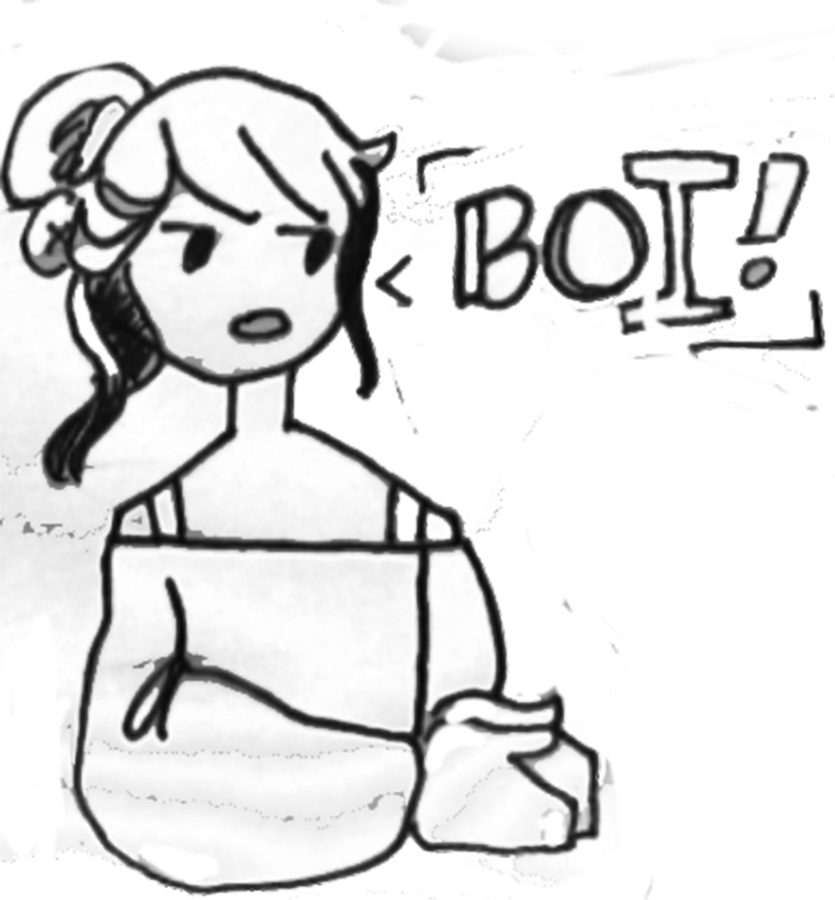Gender was a foreign concept to me as a child, something I never paid much attention to until crisis came and smacked me in the face. Like most of my peers at the time, my biggest concern was waking up early enough on Saturday mornings to catch old Pokémon reruns, but unlike a lot of my peers, I felt overly self-conscious about my gender and how I was perceived.
Growing up in a cisnormative society was a lot for my walnut-sized child brain. The gender binary was everywhere, from unnecessarily gendered products like gardening tools to frequent offhand comments from adults telling me that the way I sat “wasn’t very lady-like” or that my male friend “threw like a girl.”
I could never fully comprehend any of it. Did the way in which I sat in a chair or my clothing choices really dictate my gender? It was a confusing topic for me, and I only knew that I wanted to fit in, so I mimicked the behavior and style choices of those around me despite how uncomfortable it made me feel. I continuously hoped that this “gender” thing the adults seemed to care so much about would make sense sooner or later.
Sooner then became later, and later then became never as I hit my teenage years. The discomfort I had felt as a child was enhanced tenfold by the time I hit puberty, and all I felt was constant frustration with myself for not feeling comfortable in my own skin.
I constantly questioned why it was that whenever I saw women draped in elegant dresses and gleaming jewels, I thought they were stunning, but whenever I saw myself donned in anything similar, it just didn’t feel right, I didn’t feel like “me.”
I tried my best to brush off any discomfort, because for the longest time I thought, “Ah, yes, this is just teenage insecurity, the type that every girl in those cheesy coming-of-age movies feels. I’ll have some weird epiphany and poof, it will vanish.”
The one functioning brain cell I had left failed me once again in this regard, as the “coming-of-age” realization I had was not one in which all of my insecurities disappeared and were replaced with unwavering confidence, but one in which I had realized, “Oh, refusing to look at myself in the mirror and hating being treated like a girl maybe isn’t normal… Hmm, weird.”
I wouldn’t have come to this realization without the help of my consistent and trusty friend, a friend who had never failed me once before. Well, I guess it did tell me on occasion that I had some incurable disease or something, but other than that, this friend, by the name of Google, had always come through for me, and this was no exception.
I spent hours typing symptoms into the search bar and clicking on the corresponding articles, and finally, at 2 a.m. I connected the dots and realized that what I had been consistently feeling was gender dysphoria. The bold black definition on the National Health Service website was as clear as day.
“Gender dysphoria is a term that describes a sense of unease that a person may have because of a mismatch between their biological sex and their gender identity. This sense of unease or dissatisfaction may be so intense it can lead to depression and anxiety and have a harmful impact on daily life.”
Although further research solidified the fact that trans people don’t need to experience gender dysphoria to be trans, I found the symptoms of gender dysphoria relatable to my personal experience.
Having a label for the feelings I had been experiencing was nothing short of exhilarating, and in the coming weeks, I formed a stronger bond with Google than ever before. I found myself spending night after night researching and reading through various articles and posts, hungry for more information to explain how I was feeling.
Finally, after many articles and much thinking, I realized that I was comfortable and somewhat confident in labeling myself as nonbinary and using they/them pronouns. Unfortunately, I was only comfortable using my preferred name and pronouns in the comfort of my own mind and closet, as coming out wasn’t an easy task for my interaction-fearing self.
After months of constantly bickering with myself, I came to the conclusion that I should come out, at least to one person, because I thought, “I can’t bottle everything up forever, what do I even have to lose anyway?”
I decided to dump my secret onto the only person I knew who could handle any information I threw at them and be immediately willing to adapt to my changing situation. This person is my partner, Mo, who I’d known for over 10 years at the time, and who I knew would accept me even if I was secretly a deep sea lizard creature. I had casually come out to them during an unrelated conversation, and was immediately bombarded with caring questions that gave me a little bit more confidence in myself and my identity.
“Do you want me to correct other people? Do you just prefer they/them, or other pronouns too?” they asked.
What happened from there was like a domino effect. I came out to my partner, they accepted me and adapted, which then gave me the confidence to come out to my close friends, who accepted me. This gave me the courage to try and jump over a large mental hurdle as the 2021 school year approached: come out to my teachers.
I had always seen teachers as superior beings, and frankly, I was too scared to talk to most of them up until that point out of fear that I would be bugging them with unimportant nonsense. But, thanks to a few close friends, I gathered up the courage to hit the “send” button on six different emails, one to each of my teachers, explaining my situation and how I would like to be referred to in order to help make the classroom environment a better place for me.
Most responded to my emails, assuring me that they would do their best to make sure I felt as comfortable as possible in their classes, and this is when I realized the importance of communication, especially for a hermit such as myself. I had previously flexed my communication muscles when coming out to my friends, and again when coming out to my teachers. Although I had laid out my preferred name and pronouns to those around me, I knew that for many, it would be a bit of an adjustment.
So, here are a few tips to make environments more comfortable. These are tips that I personally find helpful to give others, but remember, everyone is different. Everyone is unique, and their preferences might be different from mine. This is where that handy dandy thing known as communication comes in. Don’t be afraid to ask others clarifying questions, it will help down the road, because in terms of how you refer to someone, word choice could potentially ruin, or brighten, someone’s day.
My first tip, always ask someone their preferred name and pronouns. To follow up this question, ask when, where and in front of whom it’s okay to use said name and pronouns.
If someone responds with, “Only use this set of pronouns in a school environment” then only use it in a school environment.
If someone says, “Feel free to use these pronouns in front of anyone” then feel free to do so. It’s all about communication, boundaries and respect.
My next tip: practice using others’ names and pronouns when alone. When having a passing thought about the person, adjust your brain to using the correct pronouns. Whether it’s spoken externally or thought internally, practice makes perfect. Soon enough, almost flawless correct pronoun usage will become a reality and someone’s day could be saved.
Although messing up is almost inevitable, what’s most important is to try to adapt, and when slip-ups happen, correct yourself nonchalantly and move on with the conversation.
My final tip, correct others who are deadnamed or misgendered if given permission by the person to do so. Personally, I’ve found it difficult to advocate for myself at times, and correcting others about my pronouns can put me in an uncomfortable situation. But when my friends correct others for me, either when I am or am not there, I personally feel at ease that someone else is advocating for me when I’m unable to do so, and it’s helped me to feel more accepted within the school community.
What my experience coming out has shown me is that everyone is more than capable of adapting. It may be difficult at times, but there’s nothing that a little communication and determination can’t do, especially when you have the power to make someone’s day just a bit brighter.




















